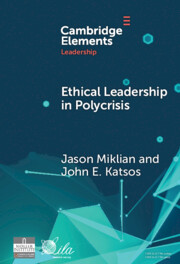This paper makes the case for a discursive understanding of ontological security and demonstrates the utility of such an approach in an analysis of European Parliament (EP) debates between 1990 and 2020. We argue that articulations of ontological (in)security operate through the (re)inscription of a set of metanarratives in what we call ‘discursive nodal points’. Building on an extensive analysis of EP debates over 30 years, we demonstrate that in contrast to the prevailing view of the European Union (EU) as an ‘anxious community’, at least on the political level, EU actors remain surprisingly confident in the European project. While they do invoke challenges to the EU, they see these as incentives to strengthen the integration project and often consider operating in crisis mode as an essential EU characteristic. In doing so, they draw on modernist metanarratives of progress, control, and power to construct an ontologically secure EU. We argue that the future ontological security of the EU will partly depend on allowing for more ambiguity in this modernist narrative without accepting a nationalist counter-narrative that undermines the idea of European integration.
